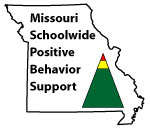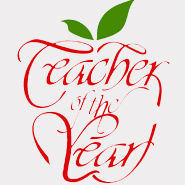I saw John Medina, author of “Brain Rules,” speak years ago and he said something to the extent of “Creation without consumption is the equivalent of playing the air guitar; you might know the motions, but you won’t actually know how to play.” -George Couros

It happens in restaurants.
It happens in high school classrooms.
Over and over, in multiple settings, technology takes the place of conversation.
But that's not what I'm talking about. Not really.
I recently read a blog post by The Principal of Change, George Couros, entitled "Memorization is Not a Bad Thing". In his article, he begins with a scenario that describes a scene with which most of us can identify: The year is 2030, and a question is asked. Rather that answer the question in regular conversation, someone at the table takes out a phone and googles the answer. On and on in the conversation, members of the group do the same, seeming to have resigned themselves to the idea that Google is the new Brain. No longer is memorization necessary! Couros observes, "Soon, no one wants to talk to you because they know the conversation will be one that is focused solely on you looking at devices for reference. How boring is that?"
Boring indeed!
Why do we memorize? There's a question that brings many responses. Off the top of my head, I would think that we memorize to internalize information and processes that will improve our lives, whether by improving the ways we do things to make our lives easier (as in cooking methods or driving strategies) or by increasing our happiness (like in pursuing the hobbies and interests that are personal to each of us). In many ways contrary to this, however, our teachers forced us to memorize the specific dates of historical events rather than place those events in the context of a timeline that would demonstrate cause-and-effect and relevance to "real life".
It's a shame, really, that most of what we memorized in the good ol' days has long been lost to our memories. There's a brain-ghost of them that remains on a wall of my mind that has long since been painted over, but that information is quite useless to me now. Thankfully, as an adult, I can study what I want to study. I chase the interests I want to chase. I can, if I choose, pursue avenues that will improve my areas of weakness, or I may continue to enhance my strengths. At any rate, I can learn in a way that is comfortable to me; no longer am I bound to working through assignments (jumping through hoops) in a manner that makes my teachers happy. After a while, I find myself becoming an expert on a topic, and I didn't ever have to sit down to memorize lists, speeches, or paragraphs to get there.
There are, of course, things that I do not know - even things I do not need to know. That does not mean I don't understand them; it simply means that I choose not to crowd my brain with certain information.
Couros would tell us there must be balance in our approaches to using our memories. As teachers, we must not dogmatically insist our students so rigidly memorize facts and figures that they lose context and purpose in the process. As Couros concludes, "Memorization is a part of it but definitely should not be an endpoint."






































